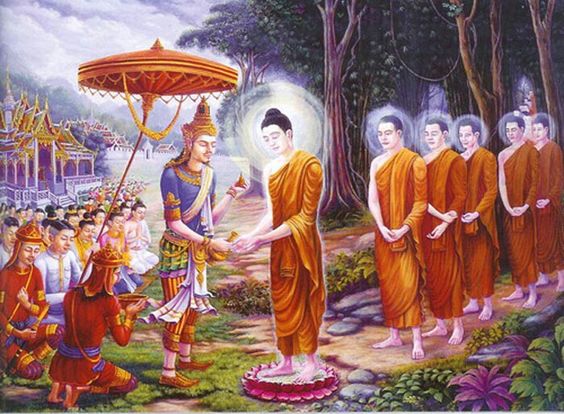WHAT ARE YOU DOING AND WHY? HOW IS IT DIFFERENT FROM WHAT WE ARE DOING AND WHY?
I am not doing anything at all. I am not interested in any goal, in any plan, in any future. I am simply living moment to moment, spontaneously.
Just as the flowers are there in the garden, doing nothing, just being there, or as the stars are in the sky, doing nothing, just being there, I am here. But there is no why and no what, simply because I don’t even think of the coming moment.
Whatever happens I allow it to happen.
You think I am speaking to you. As far as I am concerned, whatever comes to me I allow it to be spoken. I am just a mirror – a mirror does nothing.
In language it seems as if a mirror also is doing something– it reflects. Linguistically, reflection is an action – but the mirror is not doing anything. When you are in front of the mirror, it reflects you. When you have moved, the reflection disappears. The mirror is simply there, whatever comes in front of it is reflected in it.
That’s why it is almost impossible for me to speak to you unless you ask a question – because I don’t have anything to say. Your question becomes a provocation to my consciousness. It is reflected, echoed, and goes back to you, but it is not my doing.
What you are doing and why you are doing – how can I manage to know? That is your business, your problem. I can say about myself, and perhaps this is the difference: I know about myself, and you don’t know about yourself. You are doing things and you don’t know why you are doing them, what you are doing….
You are living in darkness, in ignorance, in blindness. I know exactly that I am not doing anything. On my own I am just an empty mirror. If you want something to be echoed, you come in front of me, you ask a question. If some answer arises it is a simple happening– not a doing.
Just as water flows downwards, the sun rises, the birds start singing and the flowers start opening. The sun is not doing anything. It is not knocking on each bird’s nest – ”Get up and start singing…” Just the presence of the sun – and something happens all over existence. Life starts awakening, responding.
I am simply a presence. You can draw as much as you want.
It all depends on your questions, your quest, your inquiry. I have to drop a few of your questions just because I don’t want anybody to look silly asking a question which is stupid.
The enlightened person never goes to the extreme in any way. Neither does he fast and torture his body, nor does he overeat and torture his body in another way. Both are ways of torturing your body. You can torture it by not eating; you can torture it by overeating.
The enlightened person follows THE GOLDEN MEAN: he is always in the middle, never at the extreme.
In Gautam Buddha’s life there is a beautiful story….
He was passing through Shravasti – a very rich and famous city of those days – and the king of Shravasti was one of the most egoistic persons in every way. He was an extremist about everything.
He lived in extreme luxury. The whole day he was sleeping, and the whole night was a night of dining and wining and dancing and gambling – his whole life was upside down.
He had a beautiful palace. Even on the steps he had not made a railing. On each step there were naked young women standing to function as a railing so he could go on putting his hand from one naked young woman to another.
This man heard of Buddha because so many people told him, ”At least once you should listen to this man. There is some beauty, there is some truth, and there is some magnetic force in the man. What he says is not theoretical, what he says seems to be coming from the very innermost being, his own experience. He does not quote authorities, he is not a scholar. He says what he has known, and he says it with such authority that it is impossible not to be touched by it.”
So many said this to him, that finally he managed one day to get up early in the morning and go to listen to Gautam Buddha. Whatever the people had said was no exaggeration. In fact, the man was much more than the people had said about him. He had a certain gravitation that pulled you towards him.
Shron stood up – that was the name of the king of Shravasti – touched Buddha’s feet and said, ”Please initiate me, I want to become a monk.”
It was a surprise. Nobody had ever thought that this man would become a monk. Even Gautam Buddha told him, ”You have heard me only once, you should take some time to think it over; there is no hurry.”
But that was not the type of Shron’s personality. He said, ”When I said, ‘I want to be a monk,’ I want to be a monk– and right now!”
He was an extremist. He became a monk. He renounced the kingdom.
Buddhist monks don’t live naked, but Shron started living naked. People reported to Buddha that he seemed to be really a great ascetic. Buddha said, ”You have not understood the man. He is simply an extremist.”
Buddhist monks eat one time a day. Shron would eat only once every two days. He defeated all the monks. He defeated even Gautam Buddha. When they were traveling, every monk would travel on the road, but Shron would always go by the side of the road. In the thorns, the rough stones, his feet would be bleeding. And people started respecting him immensely. Even the other monks thought they were not so great in renunciation as Shron was. Even a few started thinking that they should be followers of Shron rather than Buddha.
After six months, Shron became black – he had been a beautiful man – because he was always standing naked in the hot sun. He destroyed his body by not eating, he destroyed his feet by walking over rough stones, thorns, bushes when there was a road available.
Within six months he was badly sick, and Gautam Buddha himself went to see him. It was a rare occasion because it was not reported that Gautam Buddha had ever gone to see any other sick monk before or after.
The news went like wildfire amongst all the monks that certainly Shron was a great ascetic, otherwise Buddha would not have gone to see him just because he was sick.
But Buddha had gone for some other purpose. He did not ask Shron about his sickness. He said to him, ”I have heard that when you were a king you used to play the sitar and you were a master artist. There was not anyone else in the whole country comparable to you– is that right?”
Shron said, ”Yes. I love to play the sitar, and I had devoted my whole life to the sitar. I had come to such a mastery that there was no competitor to me.”
Buddha said, ”I have come to ask a few questions. One: when the wires of the sitar are too tight, will it give birth to great music?”
Shron said, ”To great music? It will not give birth to any music. Too tight wires will simply break.”
Buddha said, ”And if the wires are too loose, will it give great music?”
Shron said, ”You are asking strange questions. When the wires are too loose they don’t have tension enough to create music.”
Then Buddha said, ”What is the position in which the wires should be so that great music can be produced?”
And Shron said, ”They have to be in exactly the middle position where you can say they are not loose, and they are not tight. And it is one of the secrets of the art to adjust the wires to the exact middle.”
Buddha said, ”I don’t have anything more to ask you. I have just come to remind you that life is also like playing on the sitar: if you are too loose you are lost, if you are too tight you are lost. Each extreme is a death, and to find the exact middle is the whole art. You were too loose living in utter luxury. Now you are too tight living in an unnecessarily ascetic way. Come into the middle, listen to me, for the wise have always followed the middle path, they are never at the extremes. Only fools are at the extremes.”
So whatever the situation, the enlightened person will always be found exactly balanced in the middle.
That’s why it is difficult even to recognize the enlightened man. You can see the extremist very easily: he is fasting, he is standing naked in the hot sun, in the cold… you can recognize him. He is standing on his head, or he is standing on his feet for years and he does not sit down, does not lie down. And naturally you will recognize him because he is doing something which is unnatural.
The enlightened person will be absolutely natural – but this is to be understood that he will be very much unrecognizable. You will need immense insight and understanding. You will need some taste of meditation to experience the enlightened man, otherwise you will not understand him.
Osho: The Sword and the Lotus : CHAPTER 12. THE GOLDEN MEAN Q 1
कोई भूला हुआ चेहरा नज़र आए शायद
आईना ग़ौर से तू ने कभी देखा ही नहीं …………….शकेब जलाली
koī bhūlā huā chehra nazar aa.e shāyad
ā.īna ġhaur se tū ne kabhī dekhā hī nahīñ …………….Shakeb Jalali
You may recall a lost face
you did not see into the mirror so carefully.
I came across this lovely video where Pt. Shri. Ravi Shankar ji is explaining and describing Sitar. Please enjoy. (1302) Ravi Shankar : Small Description Of Sitar |1985 | In Conversation With Marian Foster | BBC | 4K – YouTube


Golden mean is something very difficult for most of us as we are used to live on extremes as we are thirsty of recognition and in the process we deviate from our values.
ॐ नमो भगवते वासुदेवाय
🙏🙏🙏
Great story of the egoistic king, lessons to be learnt, maintain balance in Life
This is exactly what the Enlightened Saints say. Live in the present moment, be like a mirror and never be an extreme, since extreme is another form of Ego.